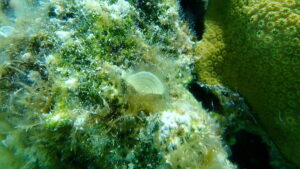US government to award $18.8m for algae biomass research

The FOA will award up to $18.8 million (€17.5 million) to address research and development (R&D) challenges in converting algae, such as seaweeds and other wet waste feedstocks, to biofuels and bioproducts that can decarbonise domestic transportation, industry and communities.
Seaweeds, also known as macroalgae, are an emerging biomass resource with unique benefits compared to land-based biomass systems.
According to the U.S. Department of Energy (USDA), however, they are underutilised and are difficult to convert due to their variability, unique chemical make-up and storage instability.
Overcoming these conversion challenges will help build algae biomass supply chains, accelerate their demand, and ultimately, drive the U.S. bioeconomy by enabling greater volumes of sustainable aviation fuel (SAF) and carbon dioxide (CO2) conversion to algae. according to the department.
“To meet our nation’s sustainable fuel needs, we need to tap into the wide variety of biomass resources that are unique to different regions of the country,” said Jeff Marootian, the principal deputy assistant secretary for the Office Energy Efficiency and Renewable Energy. “Learning how to better convert and utilise feedstocks like seaweed allows us to expand the bioeconomy and cut greenhouse gas emissions in the process.”
“Experts across DOE are working together to develop economically viable conversion technologies using biomass feedstocks like algae that consume carbon dioxide that would otherwise be emitted to the atmosphere,” said Brad Crabtree, assistant secretary of fossil energy and carbon management.
“Research and development through the funding announced today will advance the commercial adoption and integration of these technologies with carbon capture from industrial and power facilities to help fight climate change, while also creating new jobs and opportunities in communities across the country.”
Aligning with BETO and FECM’s strategic programme goals, the FOA will fund selected projects in two focus areas:
Topic Area 1 (funded by BETO) - Conversion of Seaweeds to Low Carbon Fuels and Bioproducts will focus on laboratory scale R&D on conversion of seaweeds and seaweed blends with other wet wastes to renewable fuels and bioproducts to enable these readily available feedstocks to access new markets.
Topic Area 2 (funded by FECM) - Conversion of Algal Biomass for Low Carbon Agricultural Bioproducts will focus on near or completely integrated technologies that utilize CO2 emissions streams from industrial sources or utilities to grow algae for source material and create value-added bioproducts. Of particular interest is the conversion and processing of bioproducts for use in agriculture and animal feed.



















